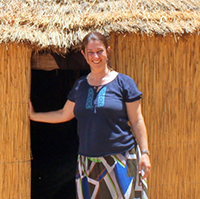
Genetic Improvement of Farmed Animals
ABSTRACT
Genetic Improvement of Farmed Animals is an extensively updated book by Geoff Simm, Geoff Pollott, Raphael Mrode, Ross Houston and Karen Marshall. This book contains the latest knowledge on genetic evaluation in livestock which includes, cattle, sheep, poultry, pig, goats and aquaculture.
Globally, livestock continues to have a wide range of important roles and can be brought about through genetics which influence animal performance. Long before the current knowledge of genetics, people understood the value and importance of choosing the best animals to become parents and avoiding unhealthy and aggressive animals. In the past half century, it has become clearer that breeding of animals moves hand-in hand with major changes in both feeding and management and it has a huge impact on animal production, leading to higher production efficiencies and lower prices for the consumers. In parts of the world where breeding has been used effectively, genetic improvement of farmed animals has contributed to increasing the availability and affordability of highly nutritious food, and contributing to the global food security challenges and it has improved resource-use efficiency per unit of product. While principles of breeding are easy to grasp, modern animal breeding methodology is anything but.
This book draws on animal breeding examples from both developing and developed countries. Within developing countries it draws from initiatives led by the International Livestock Research Institute and partners, including the African Dairy Genetics Gain Project, the African Chicken Genetics Gains Program, and the Uganda Pig Genetics project. This book is aimed to help to equip and inspire future generations of students, researchers and practitioners to raise to these global challenges and develop even more sustainable and resilient livestock breeding practices in the future.
Citation:
Simm G, Pollott G, Mrode R, Houston R., and Marshall K. 2021. Genetic Improvement of Farmed Animals. Wallingford, U.K: CABI.
Authors
Geoff Simm
Director of the Global Academy of Agriculture and Food Security
 Geoff joined the East of Scotland College of Agriculture (now part of Scotland’s Rural College (SRUC)) as an animal breeding specialist, and was involved in animal breeding research, education and knowledge exchange. He established and led for many years a research team working on livestock genetic improvement/sustainable use of farm animal genetic resources. Subsequently he held a variety of leadership roles in SRUC – latterly as Vice Principal Research, overseeing research activities spanning agricultural economic and social science, animal, crop, soil and environmental sciences and farming systems. Geoff joined the University of Edinburgh in 2016 as Chair of Global Agriculture and Food Security, Assistant Principal, and Director of the Global Academy of Agriculture and Food Security. The Global Academy of Agriculture and Food Security is one of five Global Academies that aim to galvanize interdisciplinary teaching, research and translation – across the University and with partners - on key global challenges.
Geoff joined the East of Scotland College of Agriculture (now part of Scotland’s Rural College (SRUC)) as an animal breeding specialist, and was involved in animal breeding research, education and knowledge exchange. He established and led for many years a research team working on livestock genetic improvement/sustainable use of farm animal genetic resources. Subsequently he held a variety of leadership roles in SRUC – latterly as Vice Principal Research, overseeing research activities spanning agricultural economic and social science, animal, crop, soil and environmental sciences and farming systems. Geoff joined the University of Edinburgh in 2016 as Chair of Global Agriculture and Food Security, Assistant Principal, and Director of the Global Academy of Agriculture and Food Security. The Global Academy of Agriculture and Food Security is one of five Global Academies that aim to galvanize interdisciplinary teaching, research and translation – across the University and with partners - on key global challenges.
Raphael Mrode
Principal Scientist
 Raphael Mrode is principal scientist in Quantitative Dairy Cattle genetics at the International Livestock Research. He holds a joint position at the Scotland Rural College as Professor in Quantitative genetics. He has been involved in the development and research underpinning genetic evaluations in dairy and beef cattle in the United Kingdom a member of Technical committee of the International organisation (INTERBULL) in charge of dairy cattle evaluations, auditor of International Committee for animal recording (ICAR). He has been lecturing in the Edinburgh University postgraduate course on Quantitative Genetics and Genome analysis since 2005, author of the widely used textbook, “Linear Models for the prediction of Animal breeding values” now in the third edition and has given international training courses in genetics and genomics in several countries including South Korea, India, Romania, Nigeria, Kenya, Tanzania and Ethiopia. His major role at ILRI involves developing and testing innovative genetic and genomic approaches to livestock genetic improvement that can deliver substantial improvements to poor farmers in low-input environments.
Raphael Mrode is principal scientist in Quantitative Dairy Cattle genetics at the International Livestock Research. He holds a joint position at the Scotland Rural College as Professor in Quantitative genetics. He has been involved in the development and research underpinning genetic evaluations in dairy and beef cattle in the United Kingdom a member of Technical committee of the International organisation (INTERBULL) in charge of dairy cattle evaluations, auditor of International Committee for animal recording (ICAR). He has been lecturing in the Edinburgh University postgraduate course on Quantitative Genetics and Genome analysis since 2005, author of the widely used textbook, “Linear Models for the prediction of Animal breeding values” now in the third edition and has given international training courses in genetics and genomics in several countries including South Korea, India, Romania, Nigeria, Kenya, Tanzania and Ethiopia. His major role at ILRI involves developing and testing innovative genetic and genomic approaches to livestock genetic improvement that can deliver substantial improvements to poor farmers in low-input environments.
Karen Marshall
Principal Scientist, Lead Genetics Flagship Livestock CRP
 As a previous University lecturer in animal breeding and genetics I found the first edition of ‘Genetic Improvement of Farmed Animals’ invaluable. It was the prescribed text for our undergraduate students who appreciated the easy to understand explanations and industry perspective of breeding. I was thus very honored to be invited to co-author the second version of this book. This edition, I believe, keeps all the great features of the first edition but additionally incorporates recent advances, new species, and case studies relevant to both developing and developed countries. I hope it continues to delight both students and teachers in animal breeding and genetics, and also that it is useful to others who wish to understand this rapidly evolving field.
As a previous University lecturer in animal breeding and genetics I found the first edition of ‘Genetic Improvement of Farmed Animals’ invaluable. It was the prescribed text for our undergraduate students who appreciated the easy to understand explanations and industry perspective of breeding. I was thus very honored to be invited to co-author the second version of this book. This edition, I believe, keeps all the great features of the first edition but additionally incorporates recent advances, new species, and case studies relevant to both developing and developed countries. I hope it continues to delight both students and teachers in animal breeding and genetics, and also that it is useful to others who wish to understand this rapidly evolving field.
Geoff Pollott
Animal breeding specialist
 Geoff Simm’s original book has been a standard text for undergraduate and postgraduate students for over 20 years. It was great to be involved with updating it for today’s students, researchers, advisers and farmers.
Geoff Simm’s original book has been a standard text for undergraduate and postgraduate students for over 20 years. It was great to be involved with updating it for today’s students, researchers, advisers and farmers.
Ross Houston
 This book should be an excellent reference for students and researchers in animal breeding. I am particularly pleased that aquaculture breeding is included as this field expands over the coming years.
This book should be an excellent reference for students and researchers in animal breeding. I am particularly pleased that aquaculture breeding is included as this field expands over the coming years.




